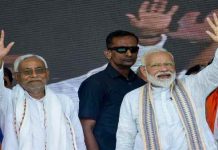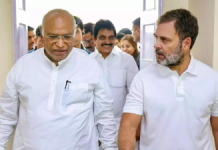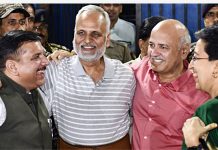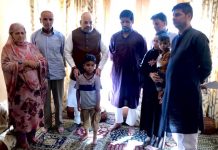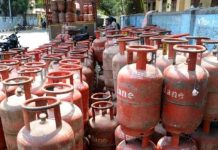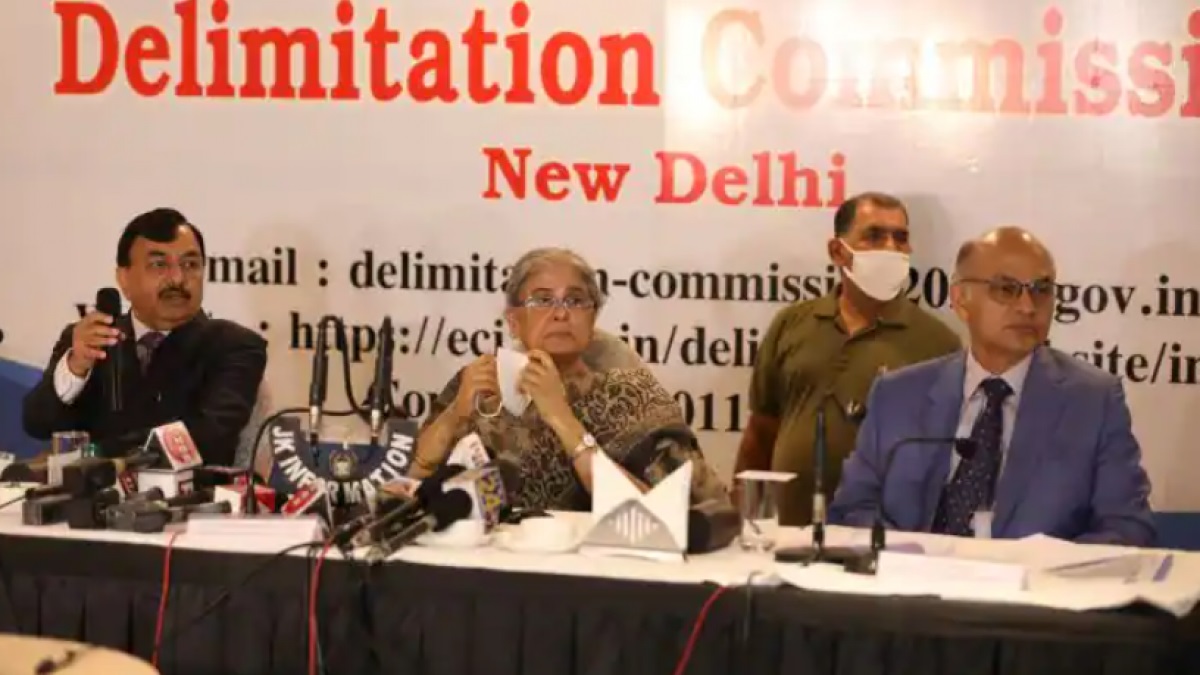
After the Delimitation Commission submits its report on May 6, the EC will take a call on Assembly polls in J-K. If and when the elections are held, the Centre would like to see a BJP-dominated govt coming to power in J-K, reports Riyaz Wani
What does the BJP winning four out of five state elections mean for Jammu and Kashmir? Ask the people on the street and they will say it means the policy continuity in the union territory. More so, with the victory in Uttar Pradesh almost ensuring that the BJP is here to stay and looks set to win in the 2024 general elections.
“We believe that the BJP is here for the long haul,” said Ghulam Mohiuddin Sheikh, a shopkeeper in Lal Chowk. “So, we don’t see any material change in the centre’s policy towards Kashmir.”
Kashmir has been without an elected government since June 2018. And after the revocation of Article 370 in August 2019, the state turned union territory and came under the rule of the Lieutenant Governor. Two and a half years on, there is little indication that an elected government would be in place anytime soon.
The union government has said that the elections will be held in Kashmir after the completion of the redrawing of constituencies by the Delimitation Commission. The Delimitation Commission will be submitting its report on May 6 after which summary revision of Electoral Rolls will be taken up by the Election Commission while all aspects of the situation including security will be reviewed before taking a call on conduct of Assembly elections in the union territory.
Headed by Retired Justice Ranjana Prakash Desai and comprising Chief Election Commissioner (CEC) Sushil Chandra and State Election Commissioner (SEC) KK Sharma, the Commission was established on March 6, 2020 with a one-year term which was extended by another year. While the term was due to expire on March 6, 2022, it was granted two months extension till May 6 this year.
The Commission is unlikely to get another extension. The completion of the delimitation exercise will pave the way for the elections. The Election Commission will hold a security review of the situation later before taking a call on holding the elections.
Union Home Minister Amit Shah had recently stated that Assembly elections in Jammu and Kashmir will be held within six to eight months after completion of the delimitation exercise.
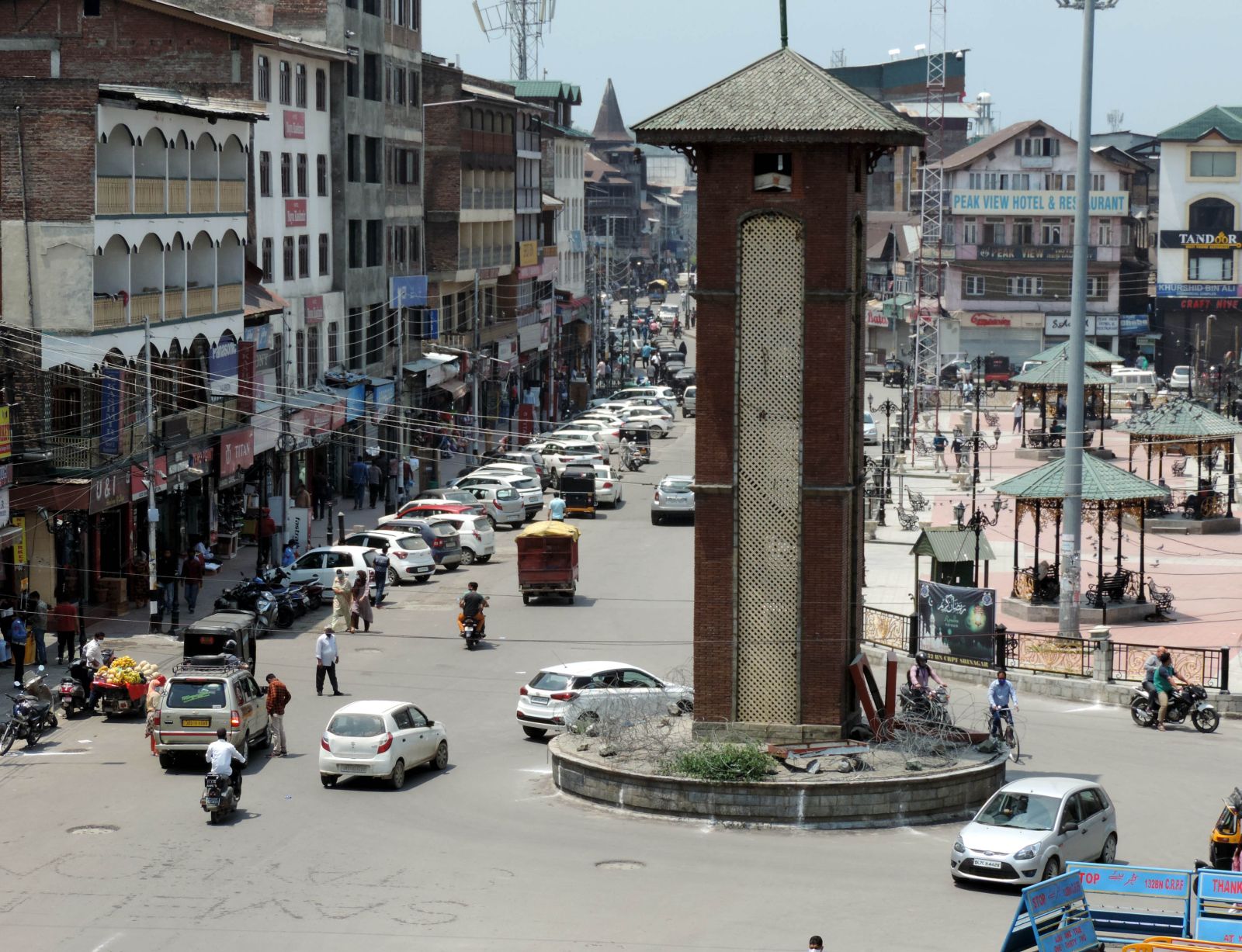
If we go by the sequence of the steps to be followed before the statehood is restored, the completion of the delimitation exercise would lead to the holding of the elections within the union territory framework. And statehood would be a third step in the process. But this sequence is unacceptable to the major J&K parties including Congress. This time they are unhappy over the home minister making the restoration of statehood to J&K conditional on the situation becoming “normal.” The logical question that follows is who will decide Kashmir is normal now, as was asked by the People’s Conference chief Sajad Lone at the time.
But as for the centre, there is no change in its Kashmir policy. Prime Minister Narendra Modi-led government is prioritizing the achievement of its ideological and strategic objectives in Kashmir before restoring the statehood. And the delimitation commission which has reduced the political weightage of Kashmir Valley in the future Assembly assumes a profound significance in this context. This has ended up changing the political landscape of J&K like never before.
An ideal arrangement from the centre’s point of view would be a government dominated by the BJP, whose chances following the delimitation of seats look brighter. Or, at least, a government of the party or parties which have reconciled to the loss of the autonomy as a fait accompli. And such a scenario looks very much possible. Over the last two years, the centre has successfully formed parties which if not directly toeing its line would dare also not question it. That is, as long as the BJP is in power at the centre.
And with the BJP looking now entrenched at the centre and across the country, the chances of any shift in policy approach towards Kashmir have all but disappeared.
“We expect elections later this year or early next year to throw up a BJP friendly government or a government headed by a BJP leader,” said a political analyst who didn’t want to identify himself. “So, essentially, there will be no difference to the existing state of affairs.”
.

